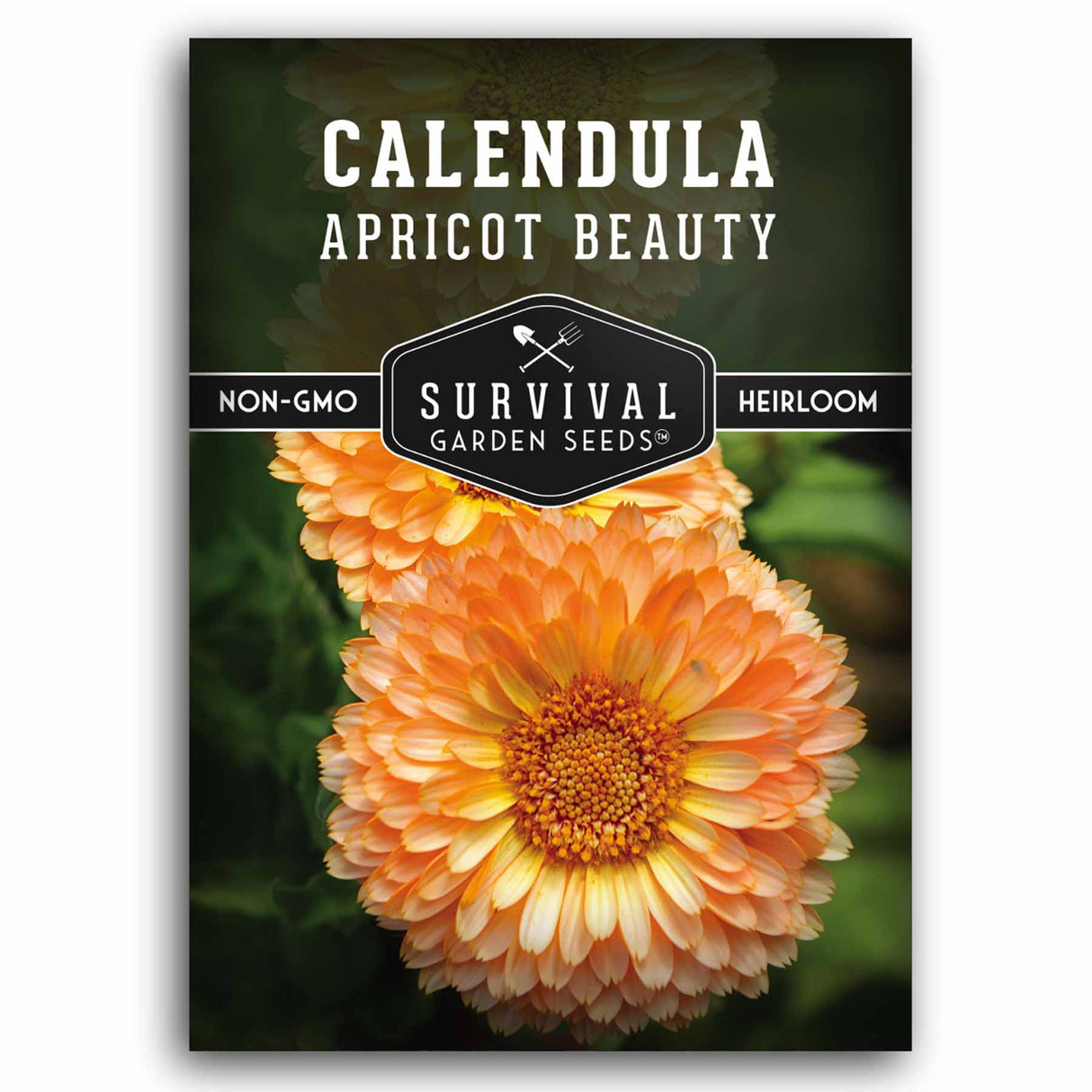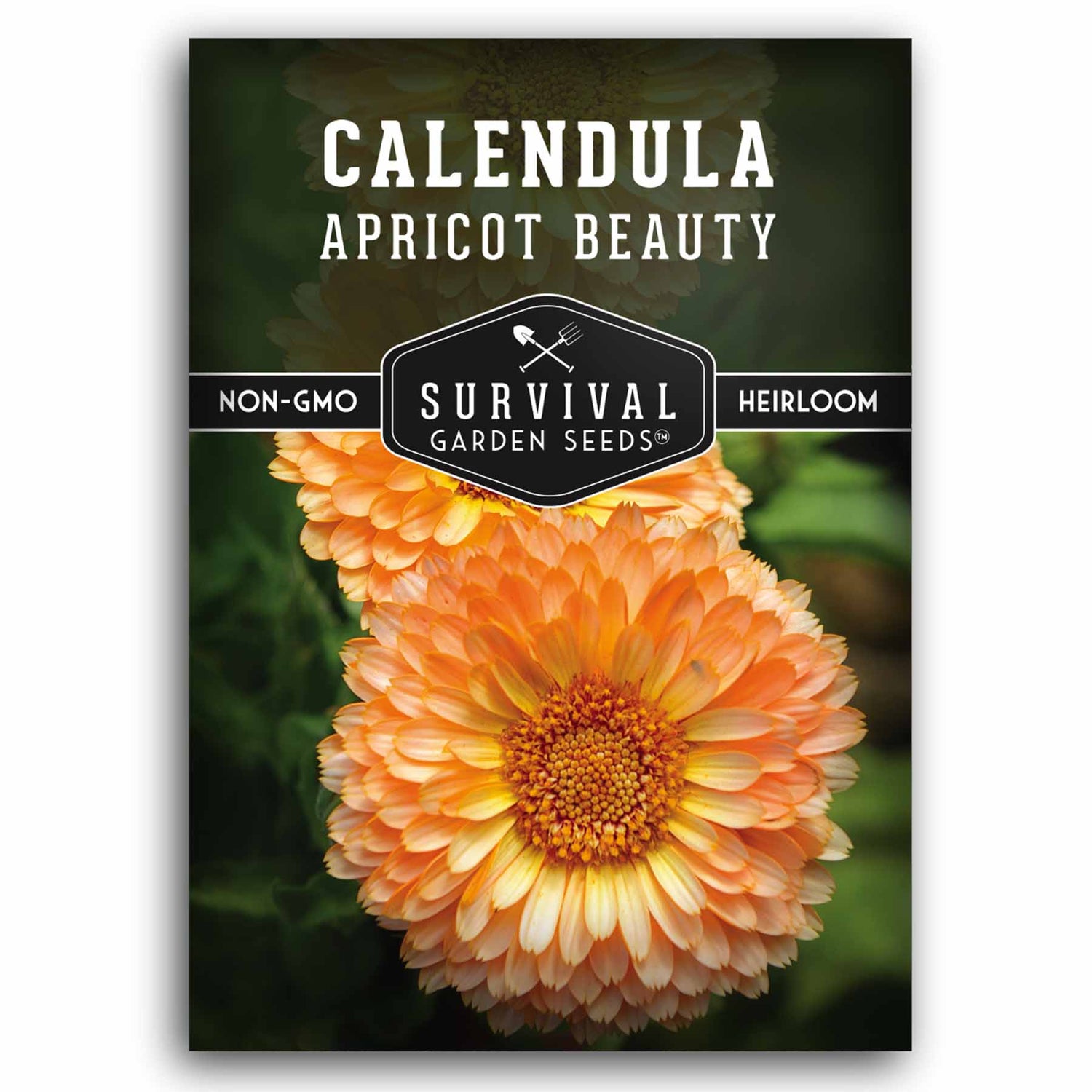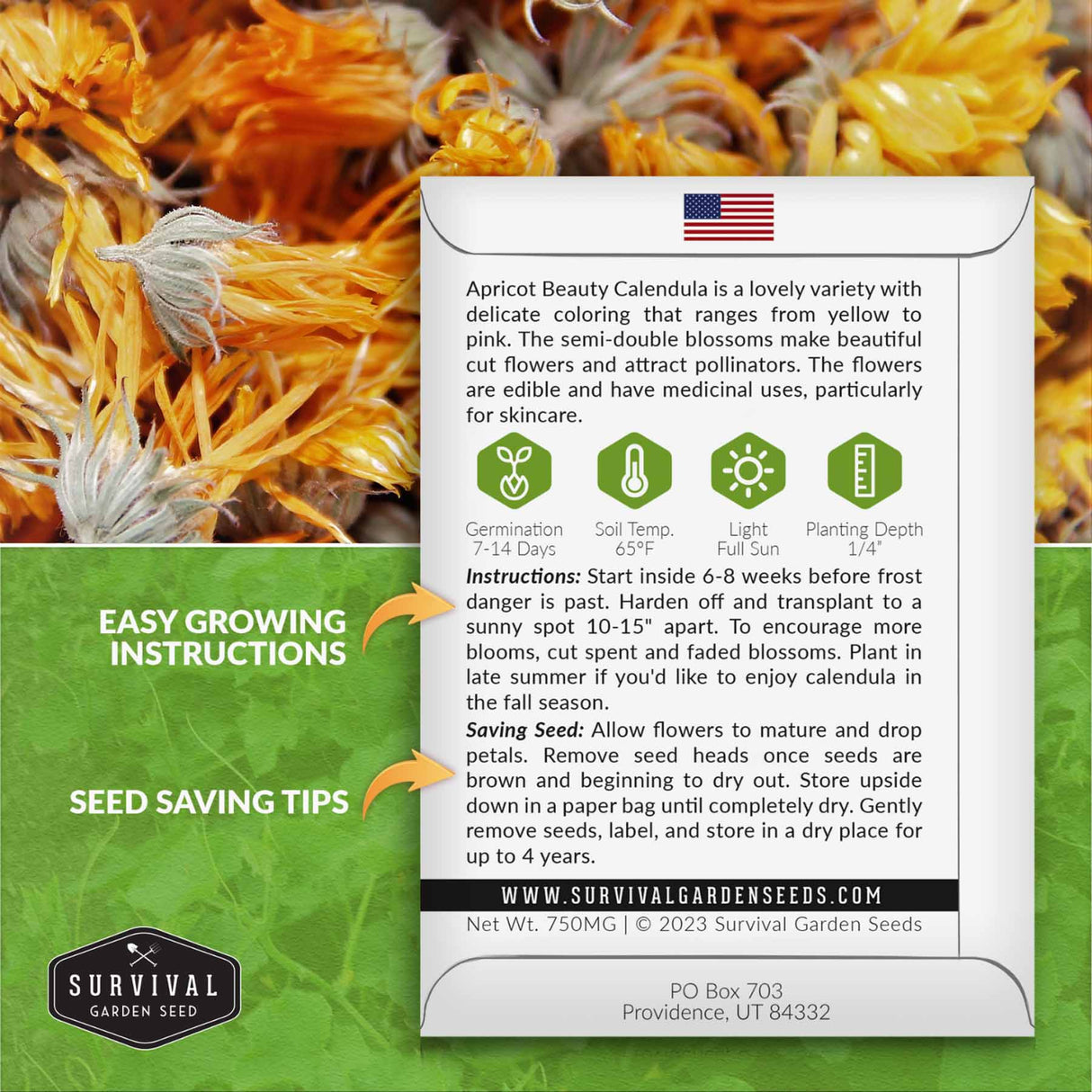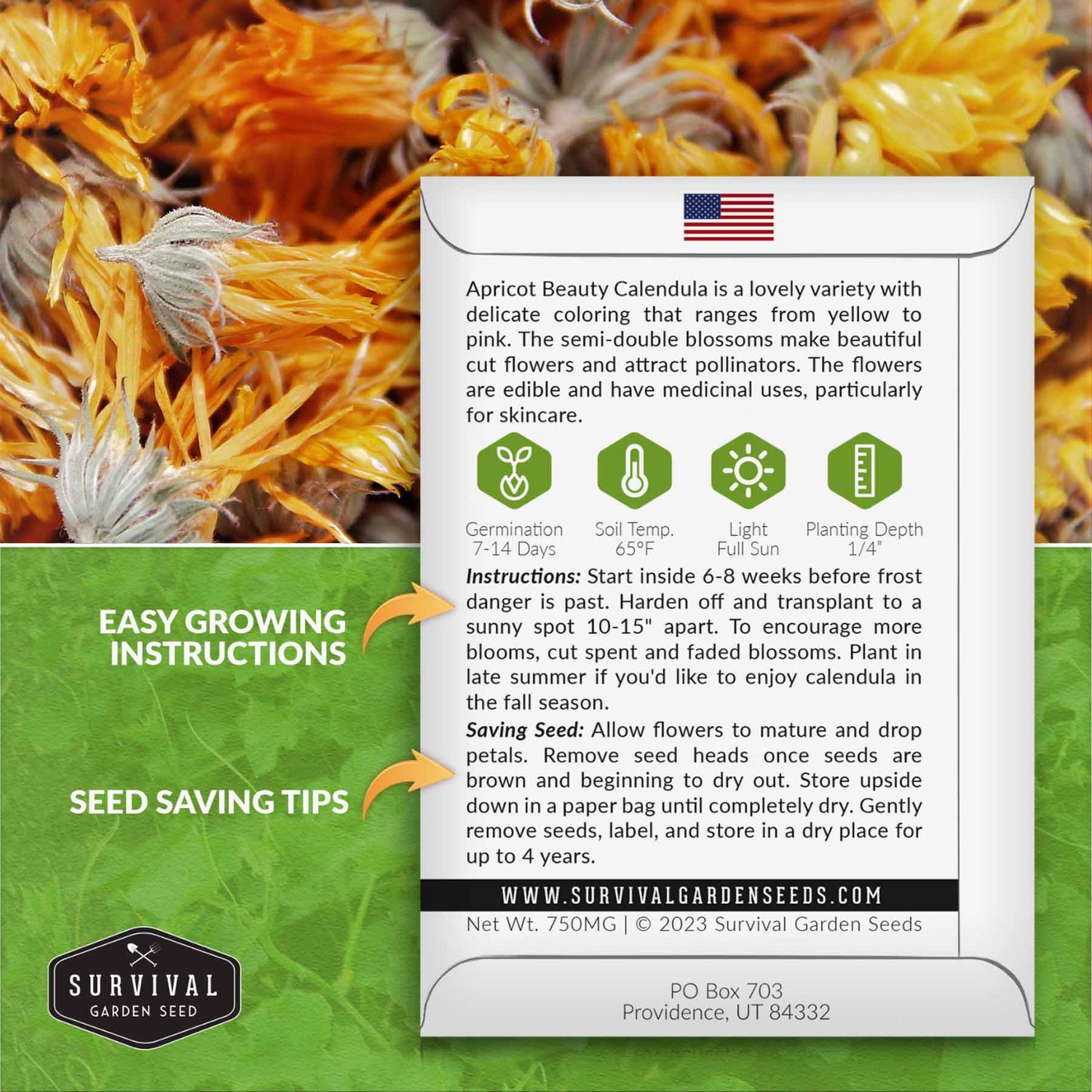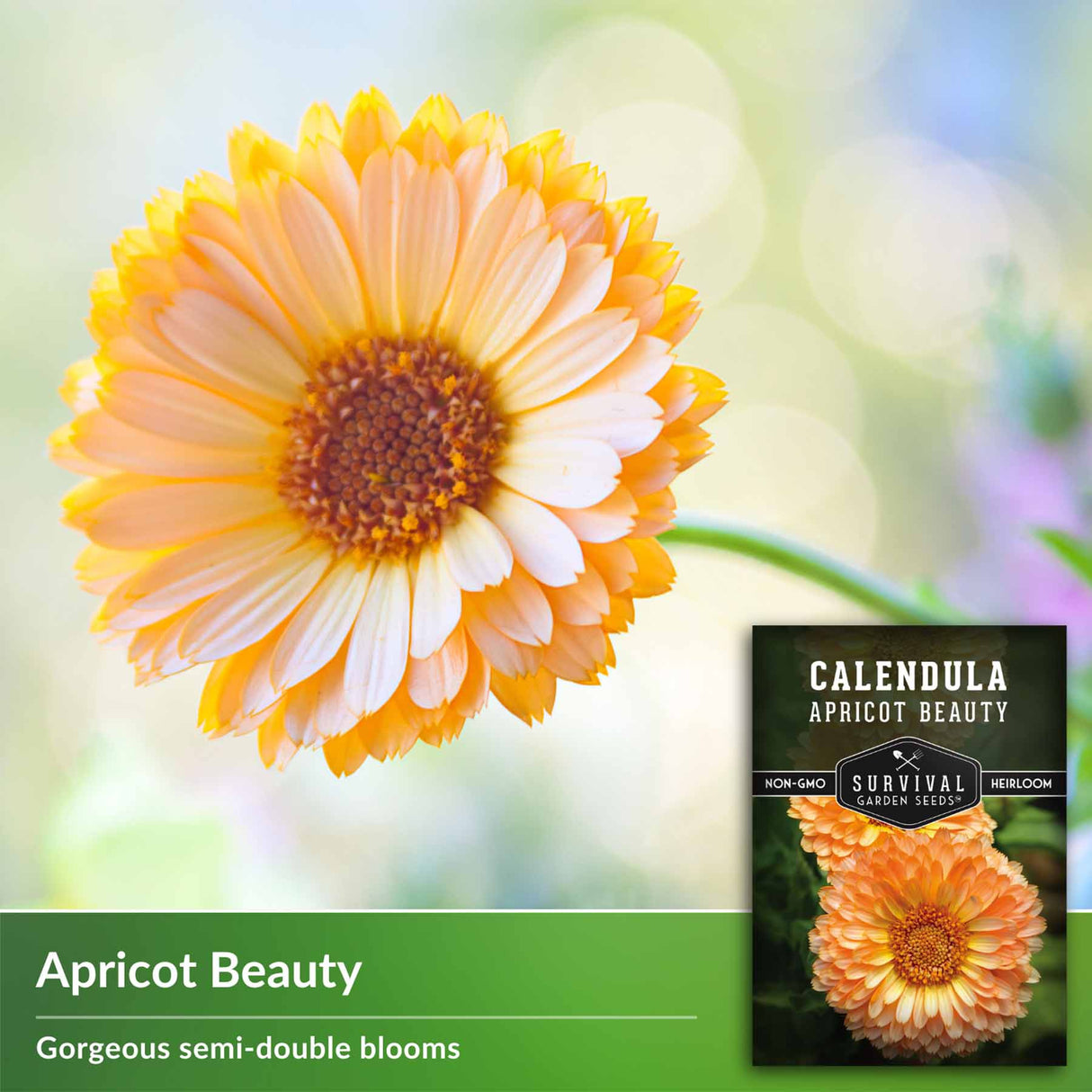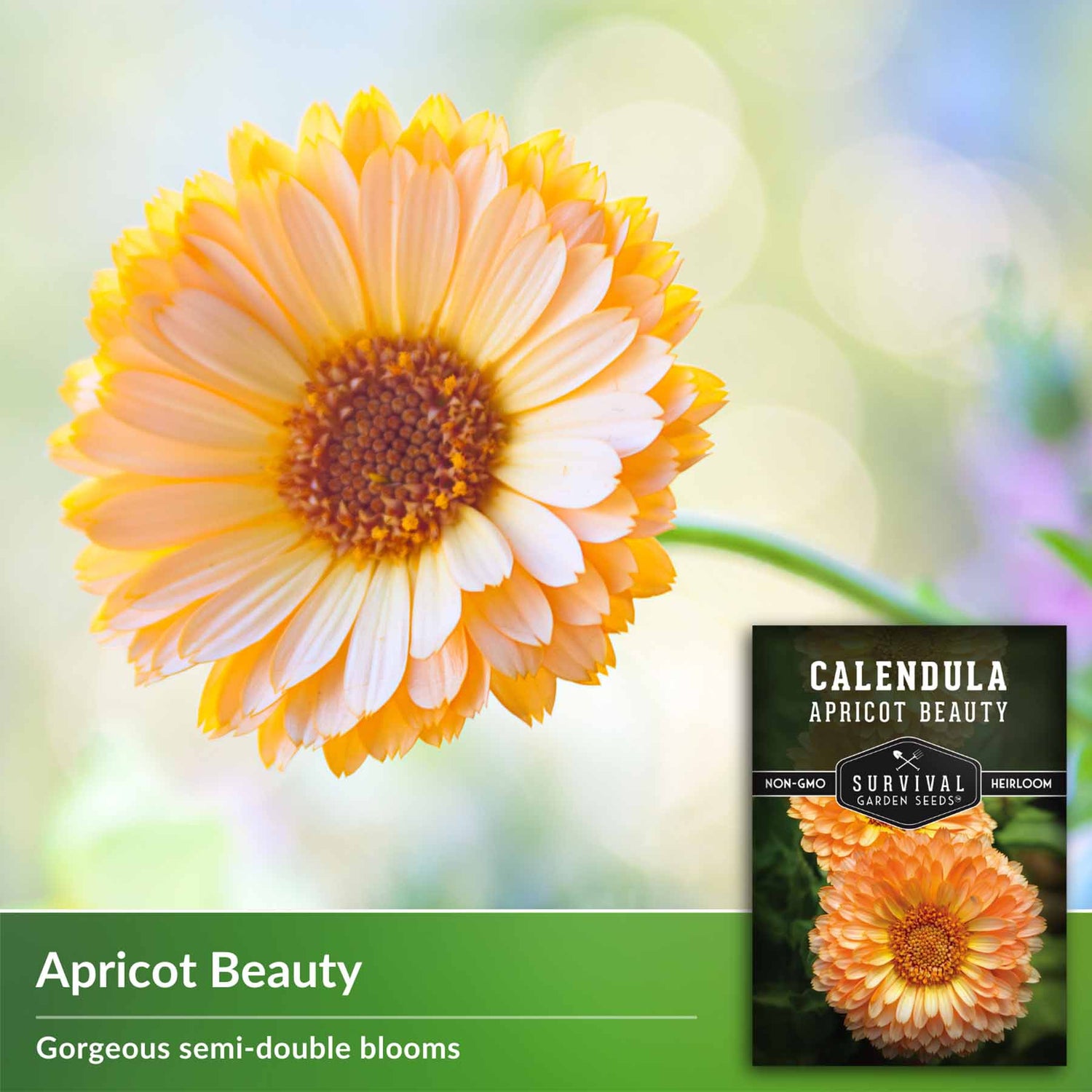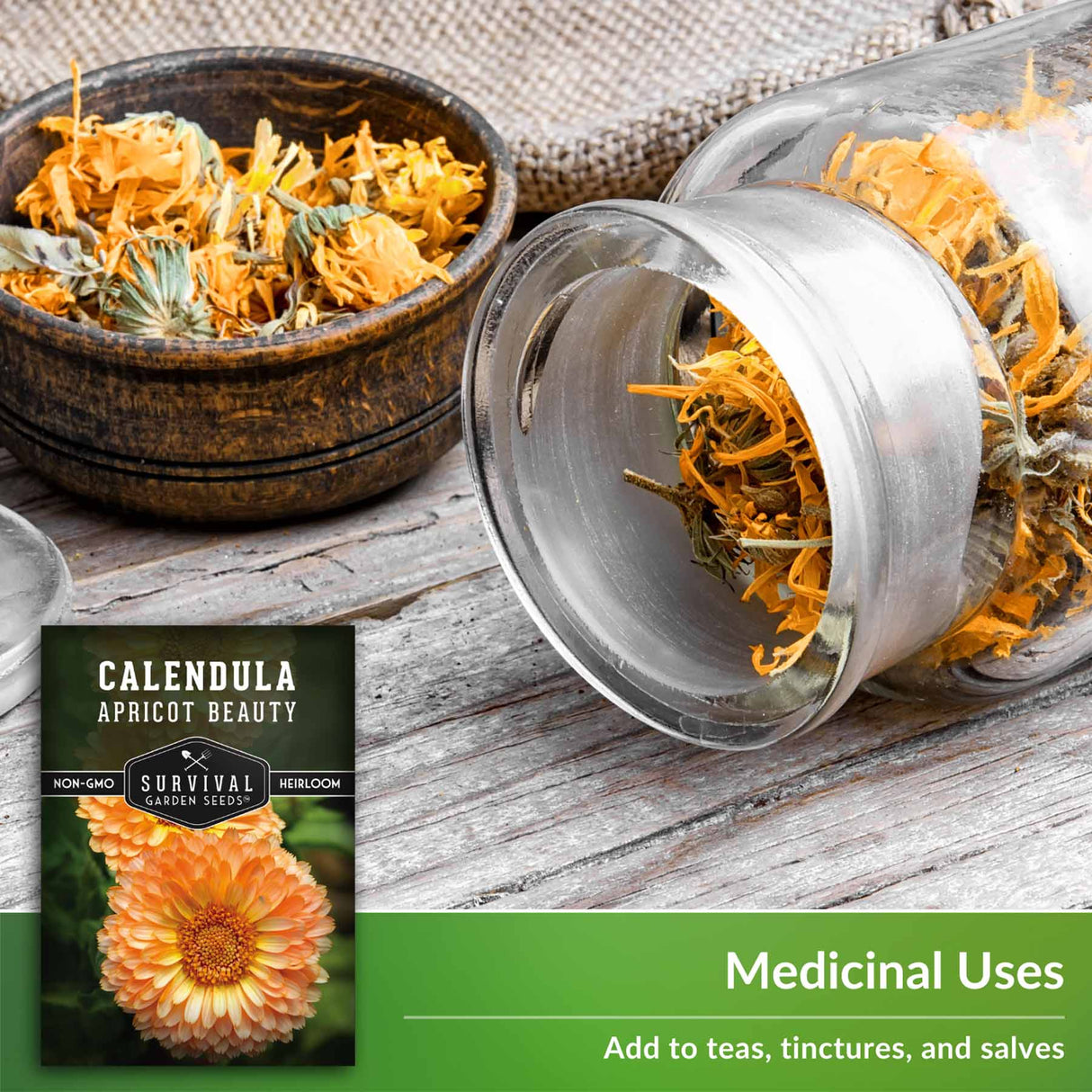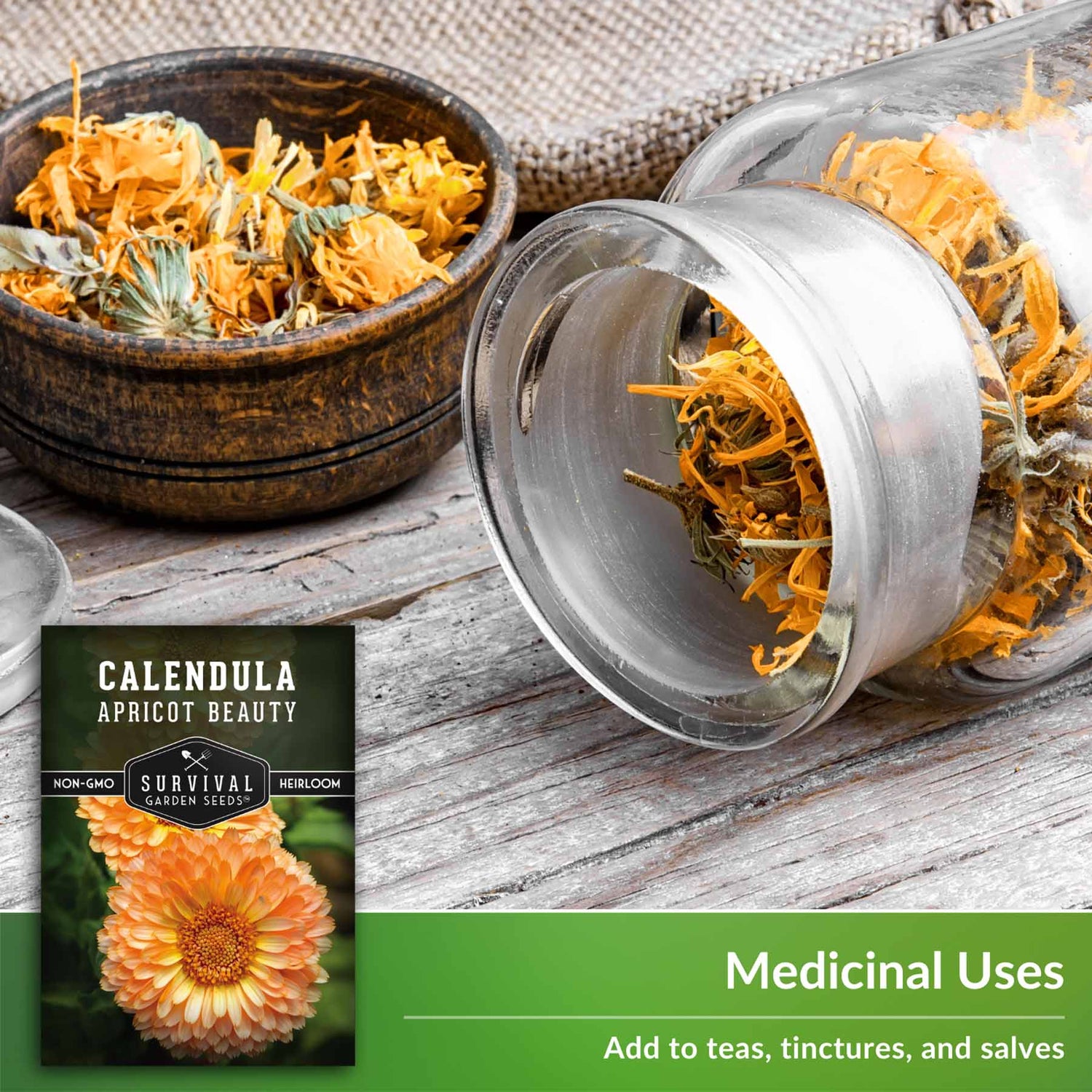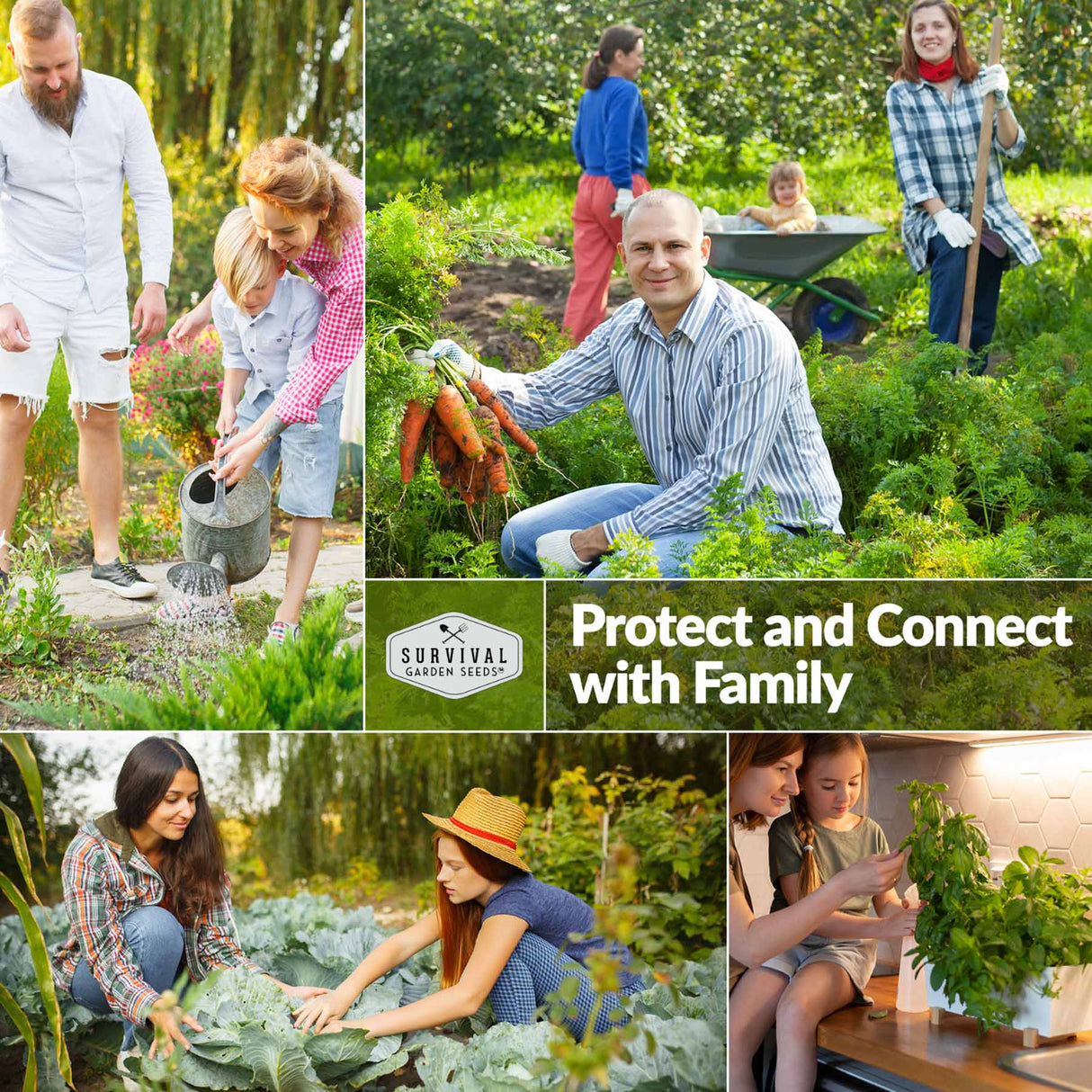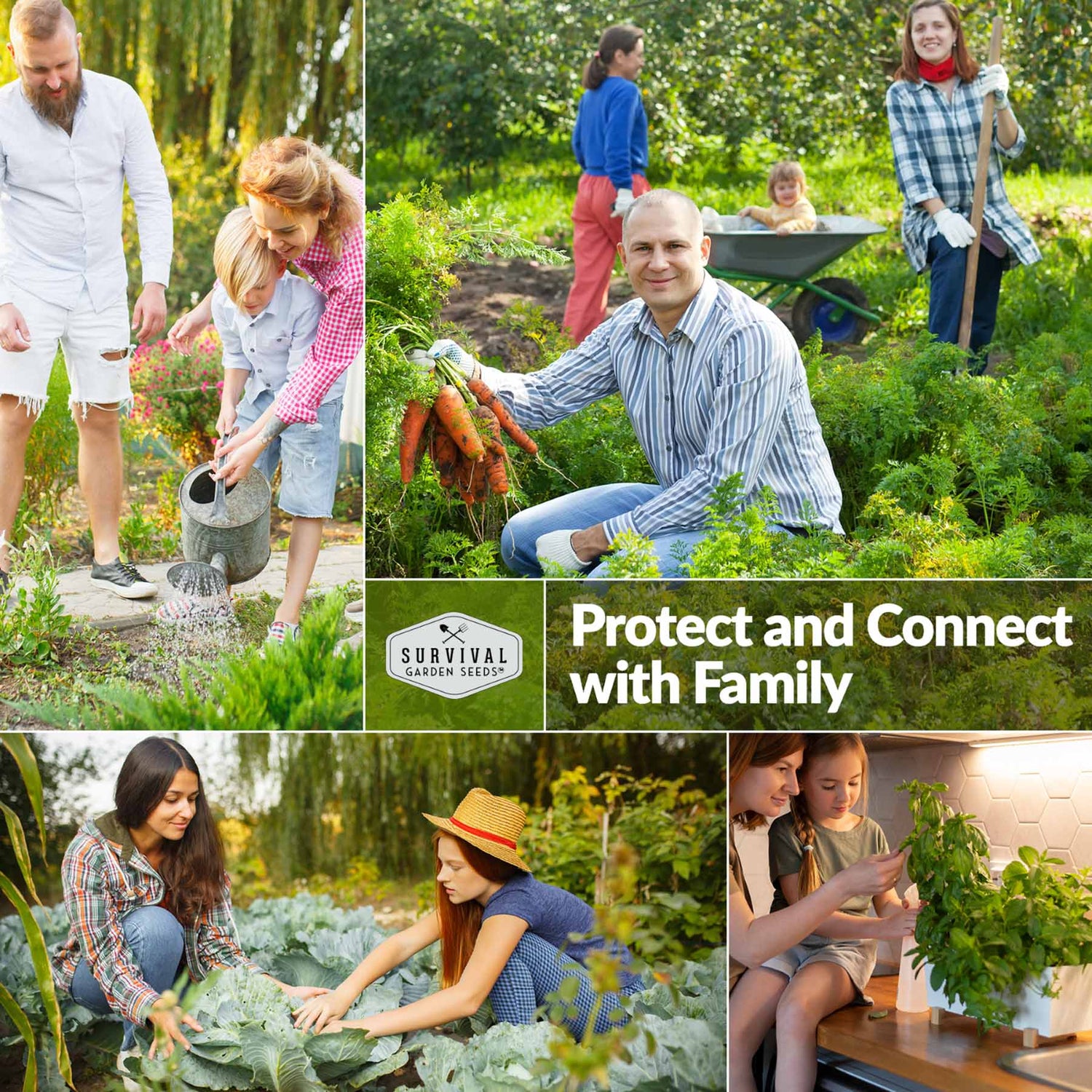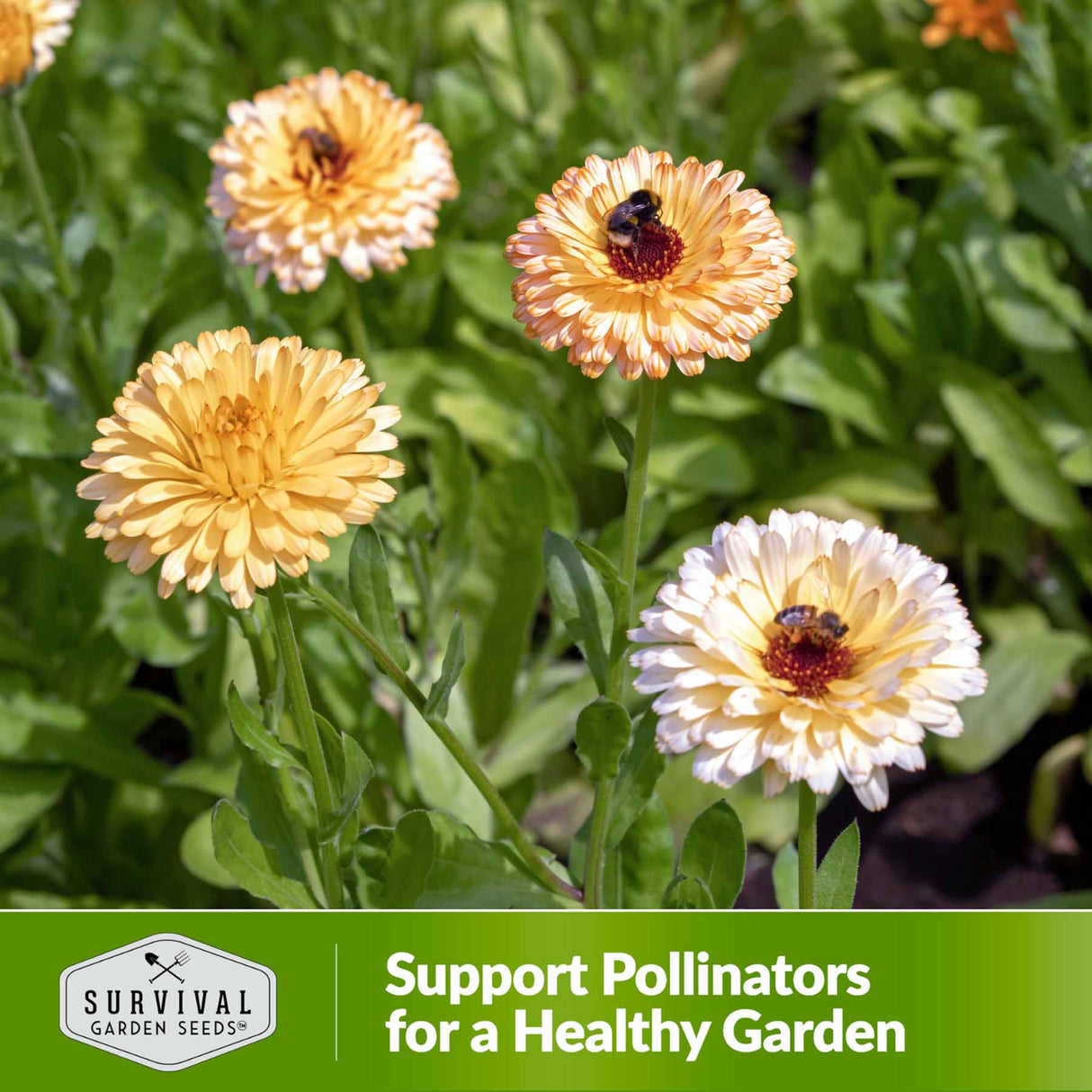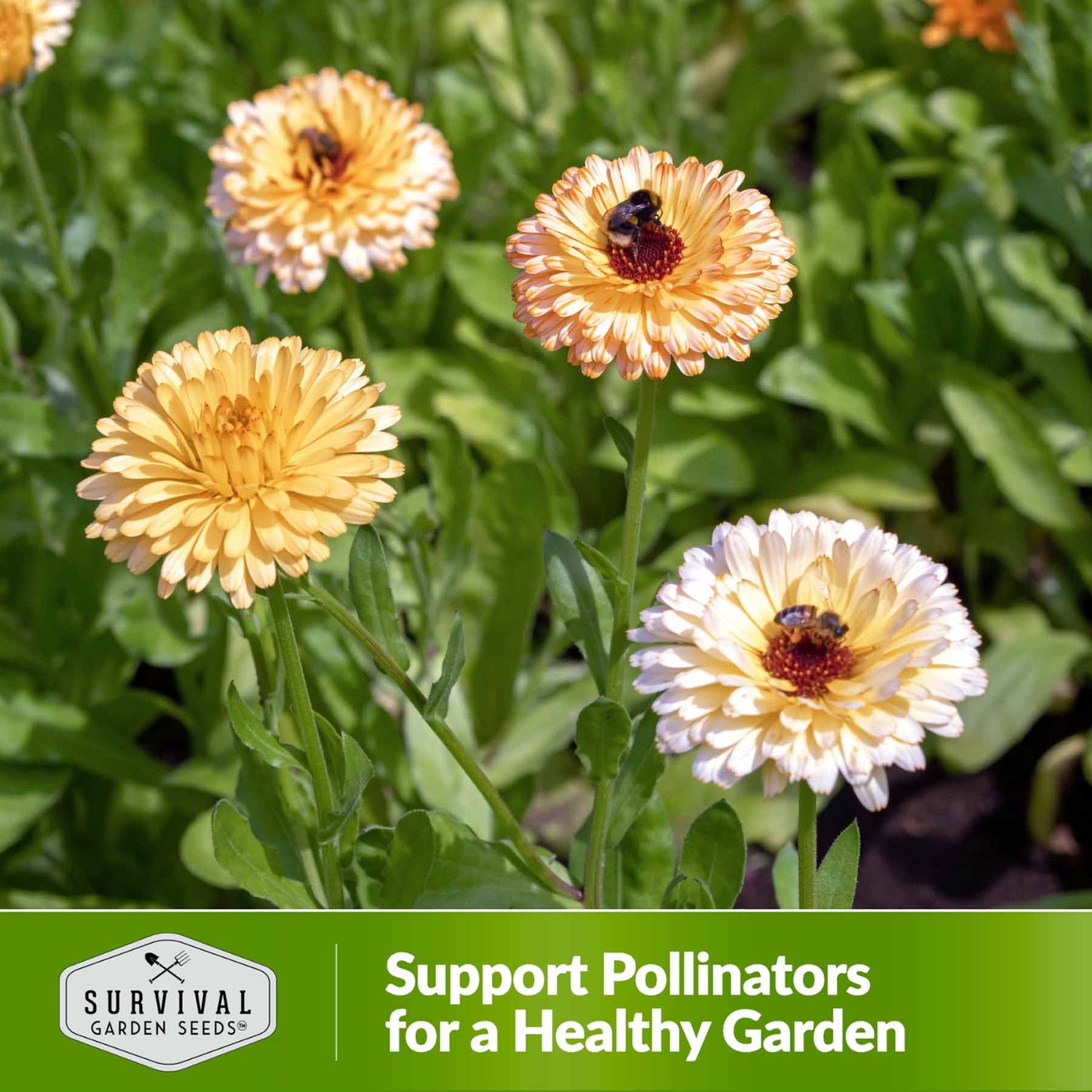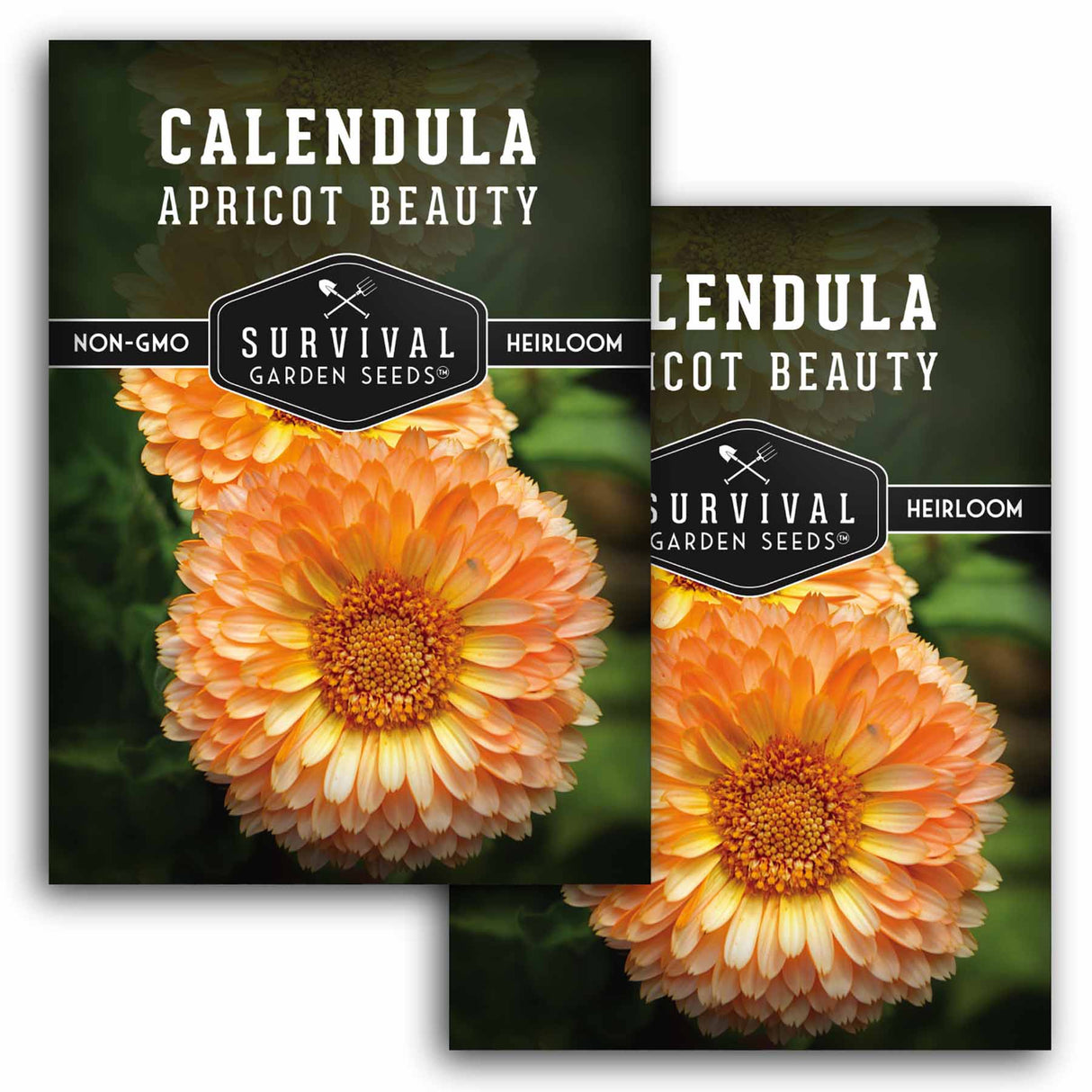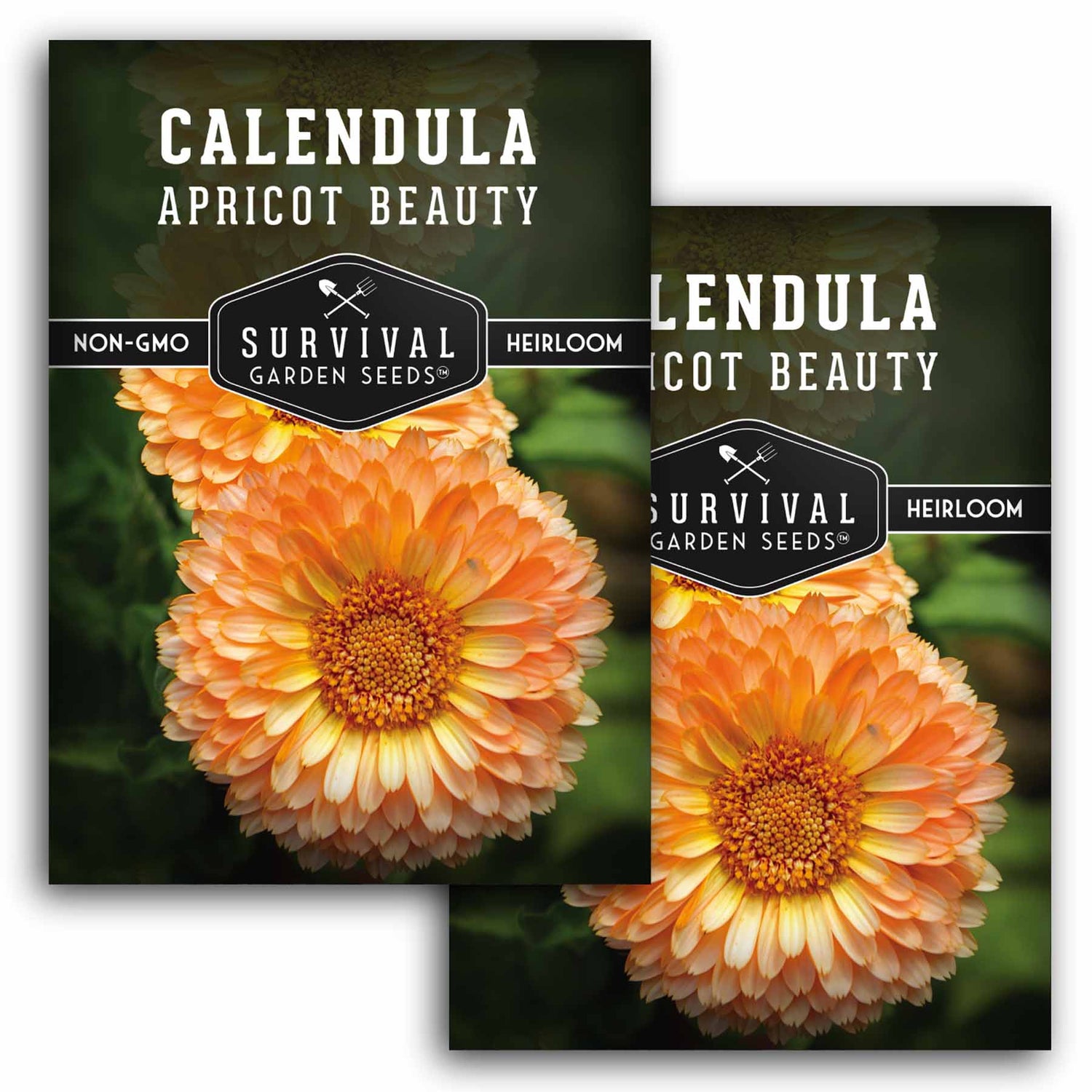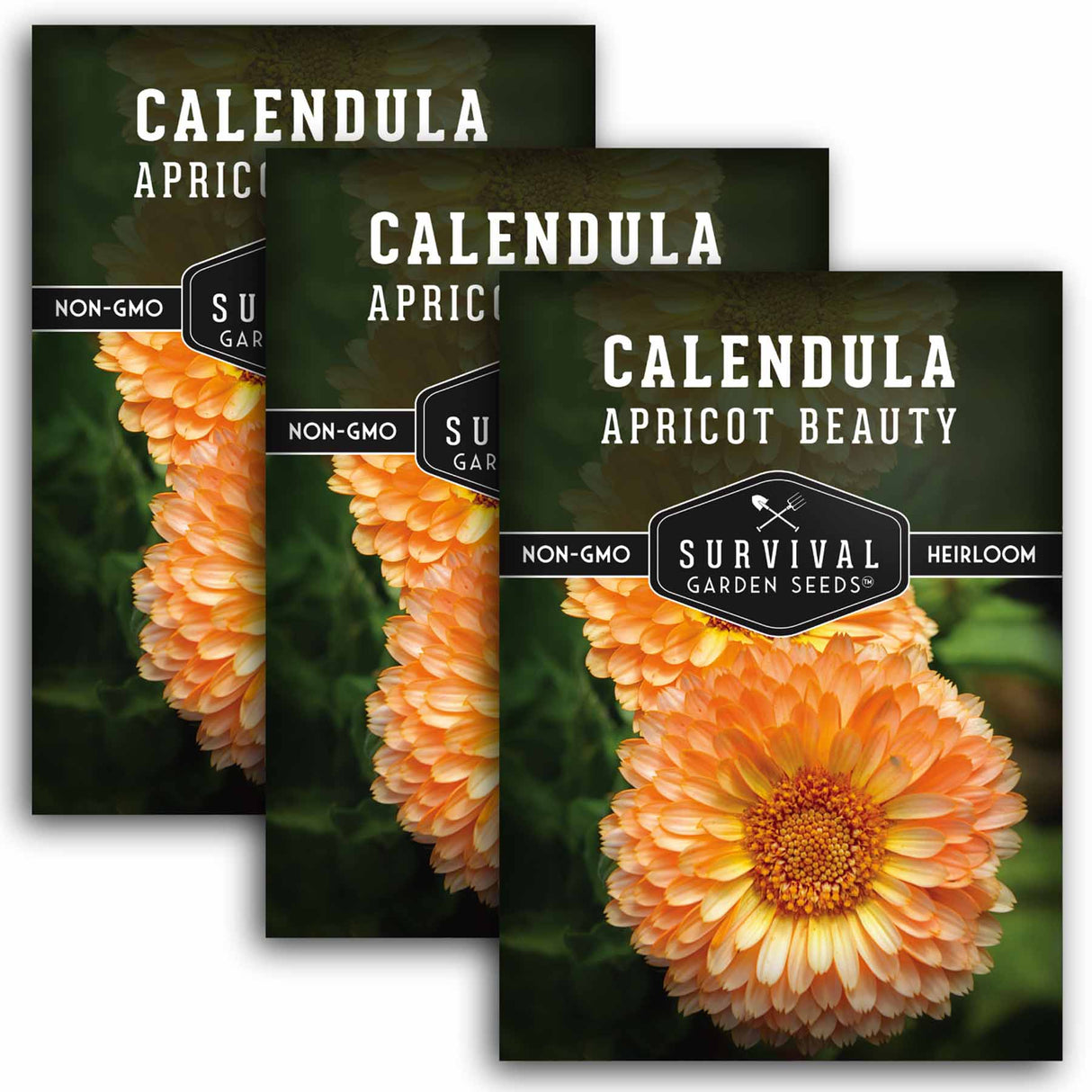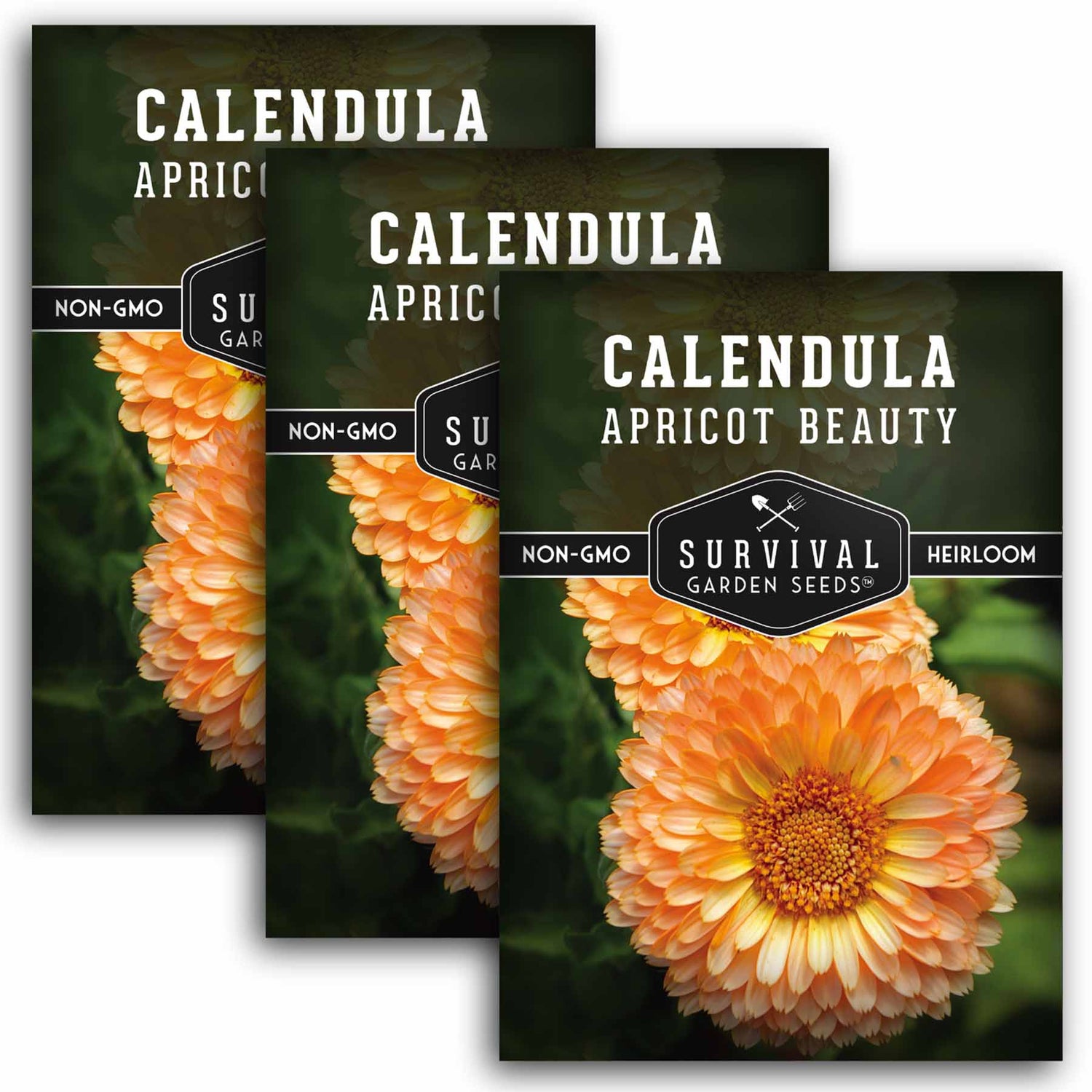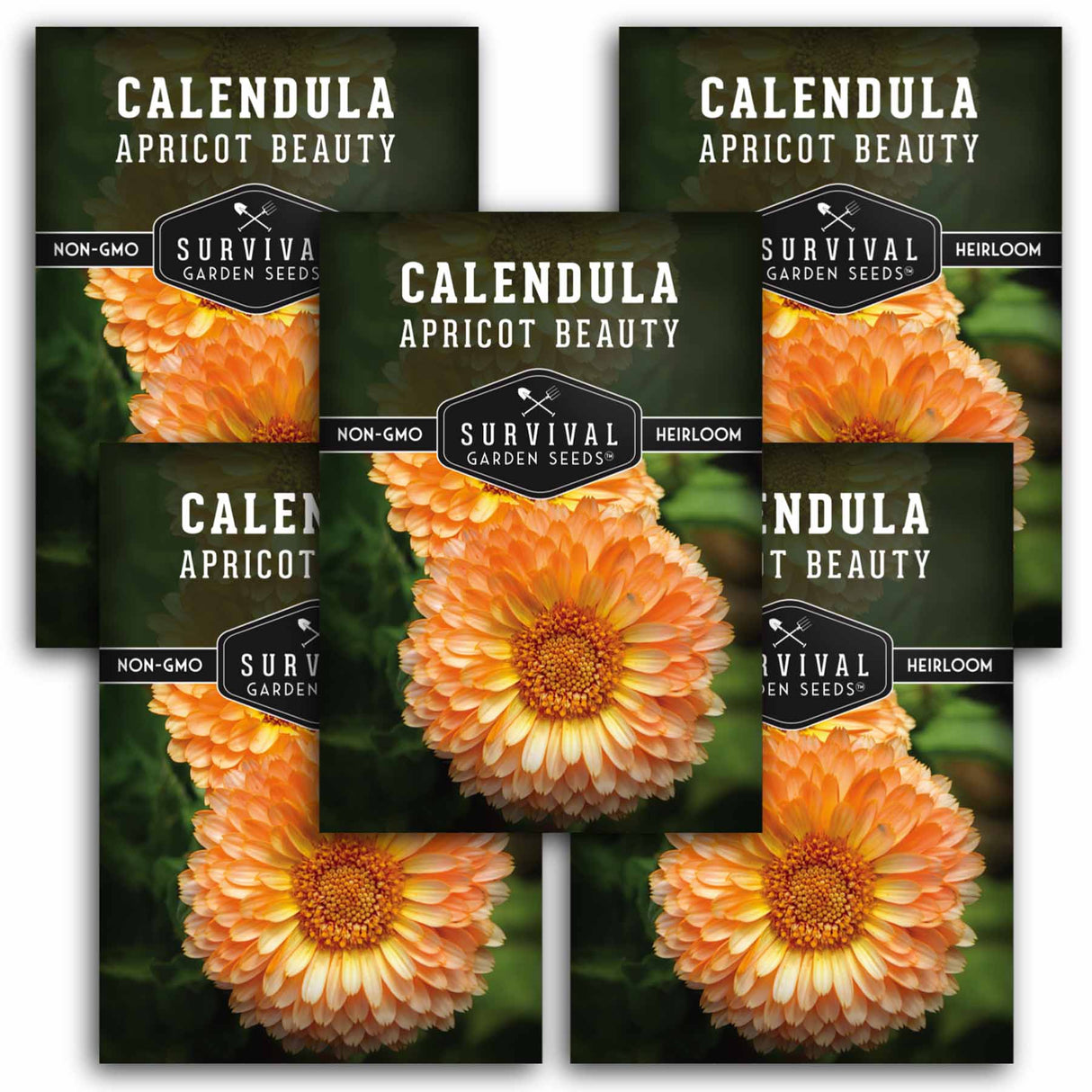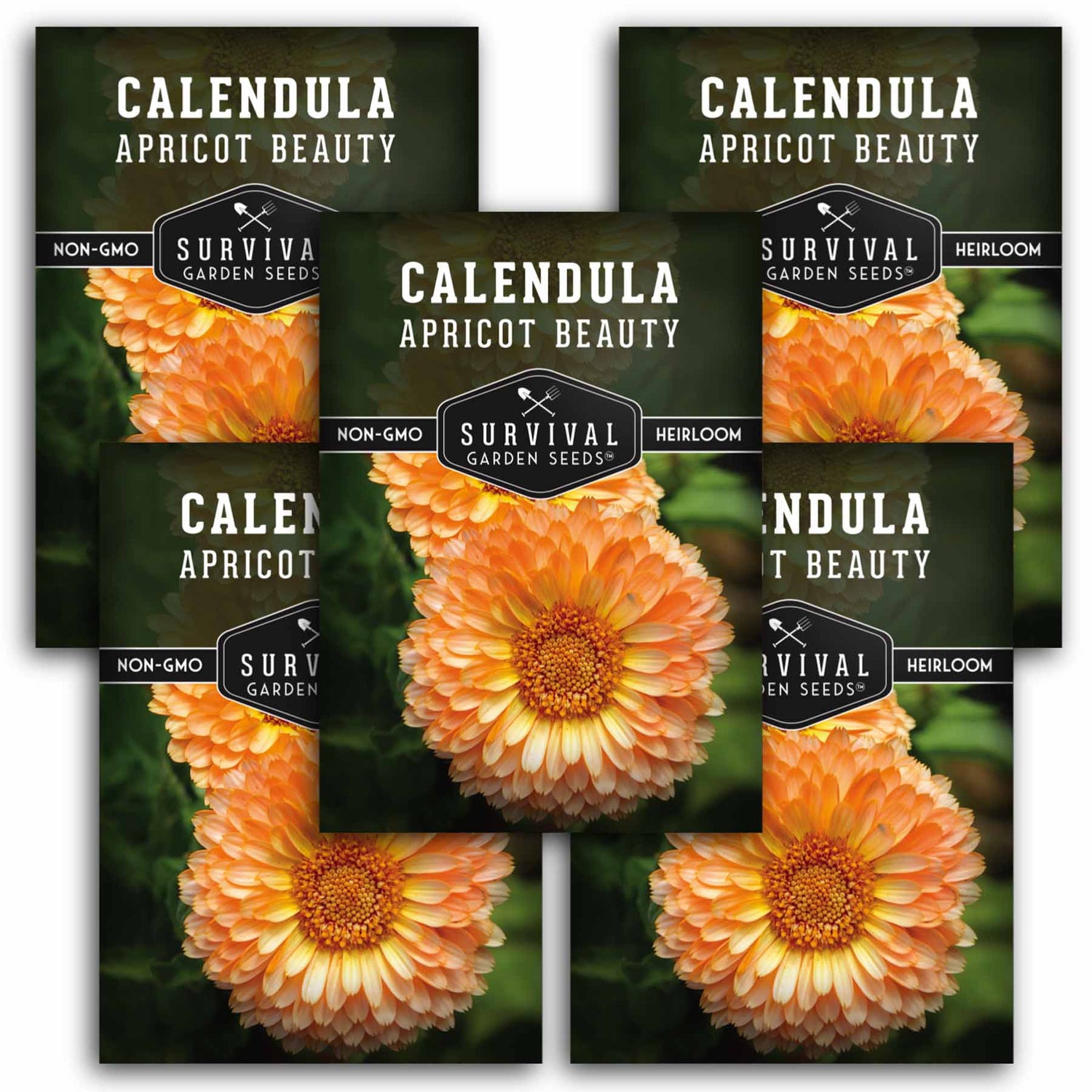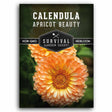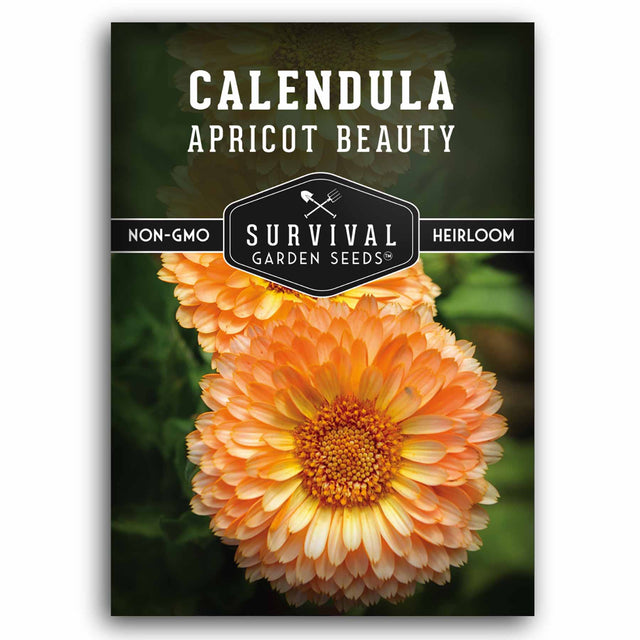Calendula Apricot Beauty Seeds – Heirloom Edible Flower & Medicinal Herb with Peach-Orange Blooms (Calendula officinalis)
Heirloom - Non-GMO - Reliable Germination
Calendula Apricot Beauty Seeds – Heirloom Edible Flower & Medicinal Herb with Peach-Orange Blooms (Calendula officinalis) - 1 Packet is backordered and will ship as soon as it is back in stock.
Couldn't load pickup availability
Grow Soft, Sunlit Blooms with Apricot Beauty Calendula Seeds
Calendula officinalis ‘Apricot Beauty’ brings warmth and color to any garden with its gentle blend of apricot, peach, pale orange, and golden tones. This heirloom pot marigold variety produces semi-double blooms that brighten garden borders, containers, and bouquets. Easy to grow and beautifully packaged, it makes a thoughtful gift for both new and experienced gardeners.
Edible Flowers & Medicinal Uses
Apricot Beauty calendula offers beauty and function in equal measure. The edible petals add a splash of color to salads, cakes, and teas, while the dried blooms are valued in herbal remedies and skincare preparations such as salves, tinctures, and balms. Known as the “herbal sunshine flower,” calendula has long been cherished for its gentle, soothing properties.
Easy to Plant & Grow
A cool-season annual, Calendula officinalis thrives in full sun and adapts well to loam, sandy, or clay soils. Sow seeds outdoors after the last frost in spring, or in early fall for a cool-season display. Seeds germinate within 7–14 days at 65–70°F, and seedlings should be spaced 8–12 inches apart. Plants tolerate light frost and bloom continuously from spring through fall, often reseeding for natural renewal year after year.
Pollinator-Friendly & Garden-Boosting
Open-faced flowers attract bees, butterflies, and other beneficial insects, helping to pollinate nearby vegetables and herbs. With sturdy stems ideal for cutting, calendulas bring cheerful color to both garden beds and vases. As a companion plant, Apricot Beauty supports healthy ecosystems by deterring pests and encouraging biodiversity.
Why Gardeners Love Apricot Beauty Calendula
- Soft Apricot Blooms: Lovely shades of peach, pale orange, and gold enhance borders and bouquets.
- Edible & Medicinal: Perfect for salads, teas, and homemade herbal salves.
- Adaptable Growth: Thrives in containers or garden beds; tolerant of varied soils.
- Pollinator Magnet: Attracts bees and butterflies for a healthier garden.
- Long Blooming Season: Flowers from spring to fall with light frost tolerance.
How to Grow
- Sow: Directly plant seeds ¼ inch deep in well-drained soil after frost danger passes.
- Water: Keep soil evenly moist during germination (7–14 days).
- Thin: Space plants 8–12 inches apart once seedlings emerge.
- Bloom: Enjoy flowers spring through fall; deadhead regularly to encourage more blooms.
- Harvest: Pick fresh petals for cooking or drying; store dried blooms in an airtight container for herbal use.
Net Wt. 750 MG
Heirloom Flower Seeds
All of our seeds are open-pollinated, non-GMO, heirloom varieties with tested germination rates
Specifications
Specifications
-
Botanical Name
-
Seasonality
-
Planting Zones
-
Light
-
Soil Temp for Germination
-
Germination Time
-
Planting Depth
-
Plant Size
-
Days to Bloom
-
Growing Instructions
-
Seed Saving Instructions
-
Seed Count (approximate)
Payment & Security
Your payment information is processed securely. We do not store credit card details nor have access to your credit card information.
Why Choose Survival Garden Seeds
At Survival Garden Seeds, we believe in preparing today for tomorrow’s peace of mind. That’s why we offer only heirloom, non-GMO, and untreated seeds you can trust to nourish your family and support a sustainable lifestyle. As a family-owned American company, we’re committed to providing seeds that grow strong and true—helping you cultivate health, resilience, and beauty in your garden.
Frequently Asked Questions
Are your seeds heirloom and open-pollinated?
Are your seeds heirloom and open-pollinated?
Yes. All of our seeds are heirloom, open-pollinated varieties, which means they can produce seeds that grow true to type and are suitable for seed saving.
You can learn more about open-pollinated, heirloom, and non-GMO seeds in our Survival Garden Training blog.
Are your seeds non-GMO?
Are your seeds non-GMO?
Yes. All Survival Garden Seeds are 100% non-GMO. Our seeds are open-pollinated heirloom varieties and are never genetically modified.
Are your seeds treated with chemicals?
Are your seeds treated with chemicals?
No. Our seeds are completely untreated and free from chemical coatings, fungicides, or synthetic treatments.
How do I know my seeds are fresh?
How do I know my seeds are fresh?
Every seed packet includes a packed-for date, and we germination-test each seed lot before packaging to ensure high viability.
What is the shelf life of these gardening seeds?
What is the shelf life of these gardening seeds?
Most seeds remain viable for 3 to 5 years or longer when stored properly in a cool, dry place away from light and moisture.
In what USDA hardiness zones can I grow your seeds?
In what USDA hardiness zones can I grow your seeds?
Our varieties are selected to grow successfully across USDA Hardiness Zones 3 through 10. Each packet includes variety-specific planting guidance and germination tips.

